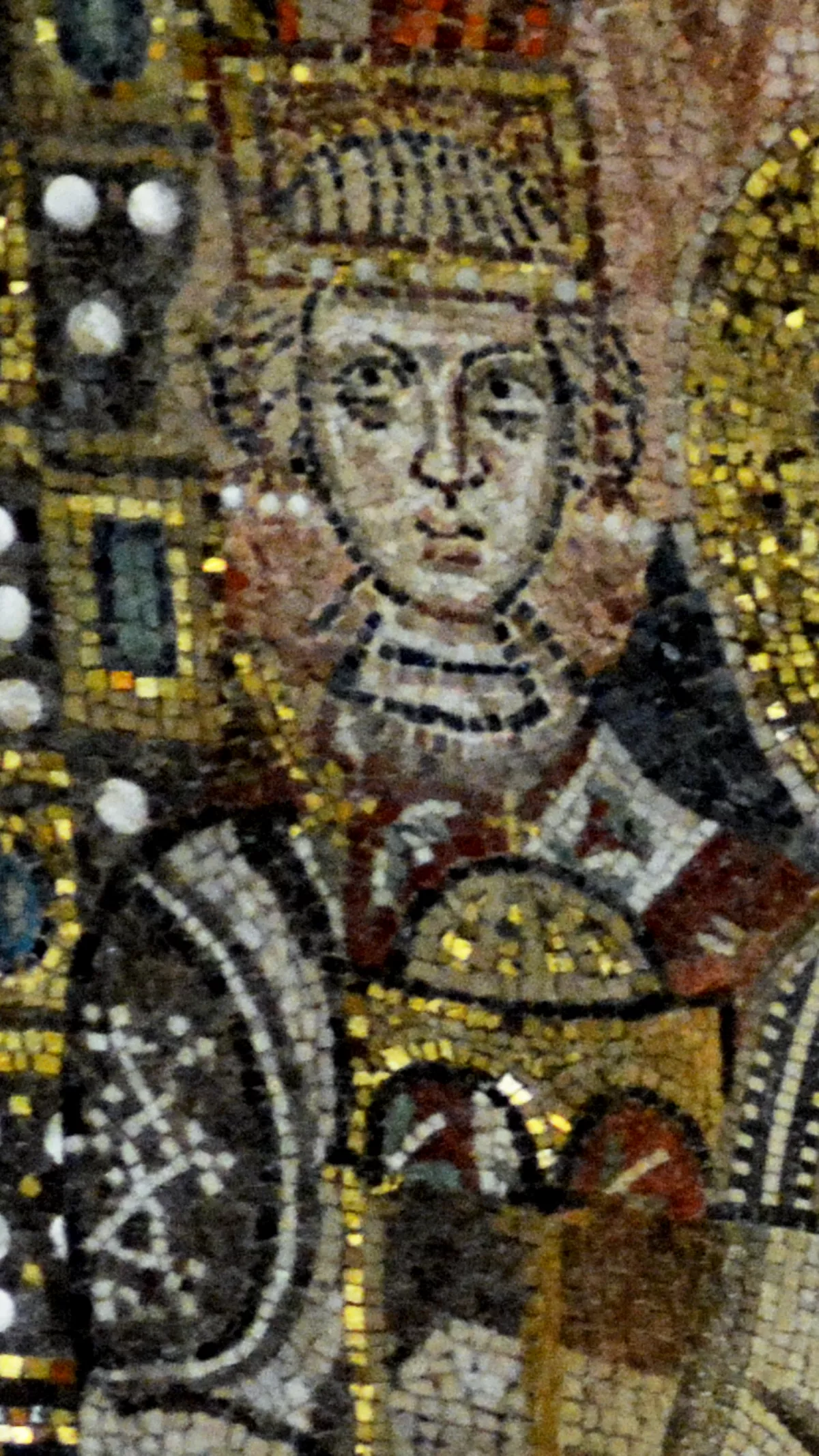 1.
1. Justinian II, nicknamed "the Slit-Nosed", was the last Byzantine emperor of the Heraclian dynasty, reigning from 685 to 695 and again from 705 to 711.

 1.
1. Justinian II, nicknamed "the Slit-Nosed", was the last Byzantine emperor of the Heraclian dynasty, reigning from 685 to 695 and again from 705 to 711.
Justinian II only returned to the throne in 705 with the help of a Bulgar and Slav army.
Justinian II was the eldest son of Emperor Constantine IV and Anastasia.
In 685, at the age of sixteen, Justinian II succeeded his father as sole emperor.
In 687, as part of his agreements with the Caliphate, Justinian II removed from their native Lebanon 12,000 Christian Maronites, who continually resisted the Arabs.
In 688, Justinian II signed a treaty with the Caliph Abd al-Malik ibn Marwan which rendered Cyprus neutral ground, with its tax revenue split.
In 687 Justinian II transferred cavalry troops from Anatolia to Thrace.
In 692 Justinian II convened the so-called Quinisext Council at Constantinople to put his religious policies into effect.
Justinian II contributed to the development of the thematic organization of the Empire, creating a new theme of Hellas in southern Greece and numbering the heads of the four major themes of the Opsikion, Anatolikon, Thracesion and Armeniakon, and the naval Karabisianoi corps, among the senior administrators of the Empire.
Justinian II sought to protect the rights of peasant freeholders against attempts by the aristocracy to acquire their land.
Justinian II was deposed and his nose was cut off to prevent his again seeking the throne: such mutilation was common in Byzantine culture.
Justinian II became a liability to Cherson and the authorities decided to return him to Constantinople in 702 or 703.
Justinian II escaped from Cherson and received help from Busir, the khagan of the Khazars, who received him enthusiastically and gave him his sister as a bride.
Justinian II sailed in a fishing boat to Cherson, summoned his supporters, and they all sailed westwards across the Black Sea.
Tervel agreed to provide all the military assistance necessary for Justinian II to regain his throne in exchange for financial considerations, the award of a Caesar's crown, and the hand of Justinian II's daughter, Anastasia, in marriage.
In spring 705, with an army of 15,000 Bulgar and Slav horsemen, Justinian II appeared before the walls of Constantinople.
For three days, Justinian II tried to convince the citizens of Constantinople to open the gates, but to no avail.
In 708 Justinian II turned on Bulgarian Khan Tervel, whom he had earlier crowned caesar, and invaded Bulgaria, apparently seeking to recover the territories ceded to Tervel as a reward for his support in 705.
Justinian II ordered Pope John VII to recognize the decisions of the Quinisext Council and simultaneously fitted out a punitive expedition against Ravenna in 709 under the command of the Patrician Theodore.
Justinian II, after receiving Holy Communion at the hands of the pope, renewed all the privileges of the Roman Church.
The rebels then seized the capital and proclaimed Bardanes as Emperor Philippicus; Justinian II had been on his way to Armenia, and was unable to return to Constantinople in time to defend it.
On hearing the news of his death, Justinian II's mother took his six-year-old son and co-emperor, Tiberius, to sanctuary at St Mary's Church in Blachernae, but was pursued by Philippicus' henchmen, who dragged the child from the altar and, once outside the church, murdered him, thus eradicating the line of Heraclius.
Justinian II's reign saw the continued slow and ongoing process of transformation of the Byzantine Empire, as the traditions inherited from the ancient Latin Roman state were gradually being eroded.
Justinian II was formally appointed as Consul in 686, subsequently adopting the title for all the Julian years of his reign, consecutively numbered.
The Synaxarion of Constantinople from the 10th century lists the commemoration of the "Emperor Justinian II", giving no reference of the emperor's life or whether it is Justinian II I or II.